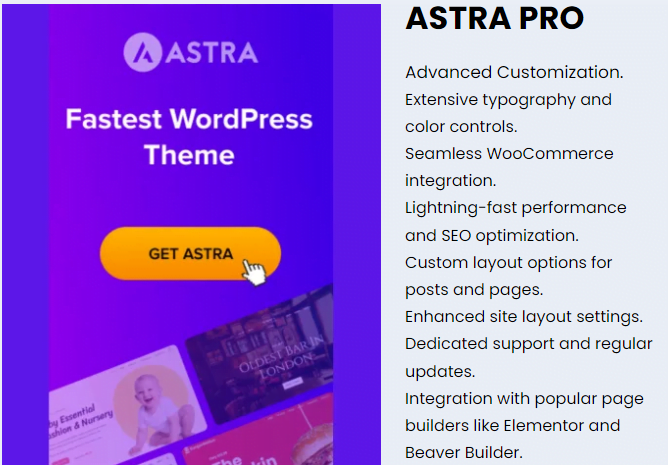52 min read

Blogging has evolved from a personal journaling platform to a thriving industry with countless niches catering to various interests and industries. Choosing the right niche is crucial because it sets the foundation for your blog’s success.
The Entire Article at-a-Glance
Choosing the right niche for your blog is a crucial step in building a successful and sustainable blogging career. Selecting a niche with low competition can give you a better chance of standing out and attracting a dedicated audience. Here’s a comprehensive guide to help you choose the best niche for blogging with low competition:
- Self-Reflection and Passion: Start by considering your own interests, hobbies, and passions. Blogging about a topic you genuinely care about will make the process more enjoyable and sustainable.
- Research Your Audience: Identify your target audience and their interests. Consider who might be interested in the niche you’re exploring. Are there specific demographics or groups that are underserved in this niche?
- Market Research: Use online tools and resources to conduct thorough market research. Look for niches with lower competition by analyzing keyword search volume and competition levels using tools like Google Keyword Planner, SEMrush, or Ahrefs.
- Analyze Competitors: Study other blogs in the potential niche. Analyze their content, social media presence, and engagement levels. Look for gaps or areas where you can provide unique value.
- Evaluate Monetization Opportunities: Determine the potential for monetization in your chosen niche. Are there affiliate programs, sponsored content opportunities, or products or services you can sell related to your niche?
- Assess Trends: Consider the long-term viability of the niche. Is it a trending topic that’s gaining popularity, or is it evergreen with a stable audience over time?
- Check for Content Ideas: Brainstorm a list of potential blog post ideas within the niche. Ensure there’s enough variety and depth to create a sustainable content strategy.
- Content Quality: Focus on niches where you can create high-quality, informative, and engaging content. Quality content is more likely to attract and retain readers.
- Passion and Expertise: Choose a niche where you have a genuine interest and, ideally, some expertise. Your passion and knowledge will shine through in your writing and help you establish authority.
- Validate with a Small Project: Before committing to a full-scale blog, consider starting a small project, like a series of blog posts or a social media account, to test the waters and gauge audience interest.
- Evaluate SEO Competition: Analyze the top-ranking websites and blogs for your chosen niche in search engine results. If there are already established, authoritative sites dominating the space, it may be a sign of high competition.
- Consider Long-Tail Keywords: Look for long-tail keywords (specific, less competitive keywords) within your niche. These can be good entry points and help you rank higher in search results.
- Unique Angle: Think about how you can approach your chosen niche from a unique angle or perspective. Offering something different can set you apart from your competitors.
- Be Patient: Understand that building a successful blog takes time, even in low-competition niches. Be patient and persistent in your efforts to grow your audience.
- Regularly Assess and Adapt: Keep an eye on your blog’s performance and be ready to adapt your strategy if needed. If you find that the niche isn’t working as well as you hoped, don’t be afraid to pivot.
Remember that low competition doesn’t mean no competition. Be prepared to work hard, create high-quality content, and market your blog effectively to succeed in any niche. Over time, you can establish yourself as an authority and grow your blog’s audience and influence.
Introduction
The cornerstone of success in the dynamic world of blogging resides in one crucial decision: selecting the appropriate niche. Your blog’s specialty is more than simply a topic; it’s also your online persona, the place where you express your ideas, knowledge, and enthusiasm. It serves as the compass for all of your content development endeavors.
Understanding the importance of niche selection cannot be overstated. It’s the bedrock upon which the success or failure of your blog rests. Your chosen niche determines your target audience, your content focus, and your ability to stand out in the crowded online space. It’s the difference between being a small fish in a big pond and a flourishing expert in a well-defined area.
Our compass today points to a vital destination: the best niche for blogging with low competition. In this exclusive guide, we’ll delve deep into the art and science of niche selection, focusing on the elusive sweet spot where passion meets profitability with minimal competition.
So, what can you expect on this exciting journey? This comprehensive guide is your roadmap to making informed decisions in the blogosphere. We’ll begin by exploring your passions and interests, laying the foundation for a sustainable blogging career. Next, we’ll embark on a quest to discover potential niches, equip you with the tools to gauge competition, and define your target audience.
As we move forward, you’ll learn how to validate your chosen niche, harness the power of long-tail keywords, and glean insights from social media and forums. We won’t stop there; we’ll also discuss monetization opportunities, evaluate trends, and emphasize the value of passion and persistence.
But that’s not all; we’ll guide you through the critical phase of testing the waters, crafting a unique brand identity, and staying well-informed in your niche. Finally, we’ll remind you that patience is the key to sustainable success.
In this guide, we’re committed to equipping you with the knowledge and tools you need to make a strategic and informed choice, ensuring that your journey in the blogosphere is not just successful but also fulfilling. So, let’s embark on this exciting voyage to find the best niche for blogging with low competition in 2023.
Understanding the Significance of Niche Selection
In the vast and diverse landscape of the internet, where countless blogs and websites vie for attention, finding your place begins with understanding the significance of niche selection.
Defining the Blogging Niche
In the context of blogging, a niche refers to the specific topic or subject area that your blog will focus on. It’s the core theme around which your content revolves. Your niche defines your blog’s identity and serves as a compass guiding your content creation efforts. For instance, niches can range from travel and fashion to technology and personal finance.
Role of Niche Selection
Niche selection isn’t a mere formality; it’s a pivotal decision that can make or break your blogging journey. Here’s why it’s so crucial:
- Audience Relevance: Your niche determines your target audience. When you choose a niche that aligns with your readers’ interests and needs, you’re more likely to attract and retain a dedicated following. Blogging without a clear niche can result in a scattered audience and lack of reader engagement.
- Content Focus: Niche selection helps you define your content focus. It guides what you write about, the problems you address, and the solutions you offer. This clarity makes your content more relevant and valuable to your audience.
- Expertise and Authority: Blogging within a specific niche allows you to showcase your expertise and establish authority. Over time, as you consistently deliver valuable content within your niche, readers begin to see you as a trusted source of information.
- Monetization Opportunities: Niche selection plays a crucial role in monetization. Some niches are more lucrative than others, with opportunities for affiliate marketing, sponsored content, and product sales. Choosing the right niche can enhance your blog’s revenue potential.
Advantages of Targeting Low-Competition Niches
In the ever-competitive world of blogging, standing out is a formidable challenge. This is where the concept of low-competition niches comes into play:
- Less Crowded Space: Low-competition niches have fewer bloggers vying for attention. This means less noise, less saturation, and a higher chance for your voice to be heard.
- Easier Ranking: With fewer competitors, it’s often easier to rank higher in search engine results for relevant keywords. This can lead to increased organic traffic and visibility.
- Niche Domination: In low-competition niches, you have a better chance of becoming a dominant authority. Your expertise shines through, and you can build a devoted readership.
- Monetization Potential: Low-competition niches may offer untapped monetization opportunities. You can explore affiliate partnerships, niche-specific products, and attract sponsors more effectively.
Understanding the importance of niche selection and the advantages of targeting low-competition niches is the foundation upon which you’ll build your successful blogging journey. In the following sections, we’ll delve deeper into the steps and strategies to help you make informed decisions and thrive in the world of blogging with the best niche for blogging with low competition in mind.
Self-Reflection and Passion
Choosing the best niche for blogging with low competition goes beyond mere market analysis. It’s about connecting your personal interests and passions with the niche you select. Here, we’ll explore why self-reflection and passion are vital components of niche selection:
Aligning Your Blog Niche with Your Interests and Passion
The intersection of your personal interests and your blog niche is where the magic happens. It’s not just about what’s popular or profitable; it’s about what genuinely excites you. Here’s why this alignment is crucial:
- Sustainable Motivation: Blogging is a long-term commitment. When you choose a niche that resonates with your passions, you’re more likely to stay motivated and committed, even when faced with challenges.
- Authenticity: Passionate bloggers tend to be more authentic and genuine in their writing. Your enthusiasm shines through, making your content more relatable and engaging for your audience.
- Deeper Knowledge: If you’re already passionate about a topic, you likely have a deeper understanding and knowledge base. This expertise translates into higher-quality content.
Tips for Identifying Your Interests and Hobbies
Identifying your interests and hobbies is the first step in aligning them with your blog niche. Here are some tips to help you discover what truly excites you:
- Reflect on Your Hobbies: Think about the activities you enjoy in your free time. What do you love doing when you’re not working? Your hobbies can often translate into blog niches.
- Consider Your Knowledge and Skills: Assess your areas of expertise and skills. What are you good at? What do you have a deep knowledge of? These can be excellent starting points for niche selection.
- Explore Your Curiosities: Pay attention to the topics and subjects that pique your curiosity. What do you find yourself researching or reading about in your spare time?
- Seek Feedback: Sometimes, friends and family can offer insights into your interests that you might overlook. Ask them what they think you’re passionate about.
The Power of Passion in Content Creation
Passionate bloggers have a unique advantage in content creation:
- Intrinsic Motivation: When you’re passionate about your niche, the motivation to create content comes from within. You’re not just doing it for external rewards; you’re doing it because you love it.
- Creativity and Innovation: Passion can fuel your creativity. You’re more likely to come up with innovative ideas, fresh perspectives, and unique angles for your blog posts.
- Audience Engagement: Passionate bloggers tend to attract like-minded readers who share their enthusiasm. This leads to a more engaged and loyal audience.
By aligning your blog niche with your interests and passions, you set the stage for a fulfilling blogging journey. Your genuine enthusiasm will shine through in your content, making it more appealing to your target audience. In the next sections, we’ll explore strategies to combine your passions with the quest for the best niche for blogging with low competition effectively.
Research Your Audience
Selecting the best niche for blogging with low competition isn’t just about your own interests; it’s also about catering to the needs and preferences of your potential readers. Here’s how to go about understanding and researching your target audience:

Identifying and Understanding Your Target Audience
Your blog’s success hinges on how well you know and connect with your audience. To do this, you need to follow a structured process:
- Define Your Ideal Reader: Begin by creating a detailed persona of your ideal reader. Consider their age, gender, location, occupation, interests, and pain points. This persona will serve as your guiding compass.
- Conduct Surveys and Interviews: If you have an existing audience or contacts, conduct surveys or interviews to gather insights. Ask about their challenges, interests, and what type of content they’d like to see.
- Analyze Competitor Audiences: Look at the audiences of blogs and websites in your potential niche. What demographics do they attract? What are their readers’ common interests?
- Engage on Social Media and Forums: Join social media groups, forums, and communities related to your niche. Listen to conversations and engage with potential readers to gain a deeper understanding of their needs.
Determining Specific Demographics and Interests
To effectively cater to your target audience, you must dig deep into their demographics and interests:
- Demographic Research: Use tools like Google Analytics or social media insights to gather demographic data on your existing audience or similar blogs’ audiences. This includes age, gender, location, and more.
- Interest Mapping: Create a map of your audience’s interests. This can be based on data from keyword research tools or content engagement metrics. Identify the topics and subtopics that resonate with them.
- Keyword Analysis: Analyze keywords related to your niche. What are people searching for? What questions are they asking? This can reveal the specific topics and pain points your audience is interested in.
- Content Analysis: Examine the content of popular blogs in your niche. Which articles have the most comments, shares, or engagement? This can provide insights into what your potential readers find valuable.
Understanding your audience in-depth is like having a secret key to successful blogging. It allows you to tailor your content, address your audience’s needs, and create a blog that resonates with them. In the subsequent sections, we’ll delve into the process of finding a niche that not only aligns with your interests but also caters to the specific preferences of your target audience in the realm of the best niche for blogging with low competition.
Market Research
Market research is the cornerstone of identifying and selecting the best niche for blogging with low competition. It involves thorough analysis and exploration of potential niches to make informed decisions. Here’s how to conduct effective market research:

Conducting Market Research for Low-Competition Niches
- Niche Selection Criteria: Start by defining your criteria for low-competition niches. These criteria may include lower search volume, fewer established authority websites, and niche-specific gaps.
- Utilize Online Tools: Leverage online tools and resources to aid in your research. These tools can provide valuable data and insights. Popular options include Google Keyword Planner, SEMrush, Ahrefs, and Ubersuggest.
- Explore Niche Communities: Visit forums, social media groups, and online communities related to your potential niches. Engage in discussions and observe the level of activity and interest in different topics.
Introduction to Keyword Research Tools
Keyword research tools are instrumental in identifying niche opportunities. They help you discover relevant keywords, gauge search volume, and assess competition.
- Google Keyword Planner: Google’s free tool provides data on search volume and competition for specific keywords. It’s a great starting point for keyword research.
- SEMrush and Ahrefs: These premium tools offer comprehensive keyword research features, including competitor analysis, keyword difficulty scores, and more detailed insights.
- Ubersuggest: Ubersuggest is a user-friendly tool that provides keyword suggestions, search volume data, and keyword competition analysis.
Analyzing Keyword Search Volume and Competition Levels
- Search Volume: When researching keywords, pay attention to their search volume. High search volume indicates a topic of substantial interest, but it may also mean higher competition. Low search volume suggests a niche with potential lower competition, but it may have a smaller audience.
- Keyword Difficulty: Keyword research tools often provide a keyword difficulty score or competition level. This metric helps you understand how challenging it is to rank for a specific keyword. Aim for keywords with lower difficulty scores in low-competition niches.
- Long-Tail Keywords: Consider long-tail keyword-specific and less competitive keyword phrases. These can be valuable entry points into a niche and help you rank higher in search results.
Effective market research is a strategic step in finding the best niche for blogging with low competition. By leveraging keyword research tools and understanding search volume and competition levels, you can identify niches with growth potential and lower competition, setting the stage for your successful blogging journey. In the subsequent sections, we’ll delve deeper into strategies for assessing competition and uncovering opportunities within these niches.
Analyze Competitors
Analyzing competitors is a crucial step in understanding the landscape of your potential niche and uncovering opportunities within it. Here’s how to effectively analyze competitors in the context of selecting the best niche for blogging with low competition:

Studying Other Blogs in Your Potential Niche
- Identify Competitors: Start by identifying the key competitors in your chosen niche. These are the blogs or websites that already have a presence in the niche.
- Examine Their Content: Dive deep into their content. Analyze their blog posts, articles, and resources. Pay attention to their writing style, tone, and the topics they cover.
- Content Quality: Assess the quality of their content. Look for well-researched articles, valuable insights, and engaging formats. Consider how you can match or surpass their content quality.
Analyzing Competitors’ Content, Social Media Presence, and Engagement
- Content Analysis: Evaluate the type of content they produce. Do they focus on how-to guides, listicles, tutorials, or other formats? Identify gaps in their content that you can fill.
- Social Media Presence: Examine their social media profiles and activity. How many followers do they have? Are they active on multiple platforms? Analyze the type of content they share and their engagement levels.
- Audience Engagement: Look at how engaged their audience is. Do they have a high number of comments, shares, likes, and reviews? This can provide insights into what resonates with readers.
- Backlink Profile: Investigate their backlink profile. Determine which websites are linking to their content. This can help you understand their authority in the niche.
Identifying Gaps and Opportunities in the Chosen Niche
- Content Gaps: Based on your analysis, pinpoint areas where competitors may have missed opportunities or failed to provide comprehensive information. Identify topics or angles that haven’t been adequately covered.
- Audience Needs: Consider the needs and questions of your target audience. Are there specific issues or challenges that competitors haven’t addressed? Addressing these gaps can set you apart.
- Differentiation: Determine how you can differentiate your blog from competitors. This could involve offering a unique perspective, providing additional resources, or presenting information in a more engaging way.
- Content Gaps and Opportunities: Your goal is to identify content gaps and opportunities that align with your niche’s low-competition focus. By addressing these gaps, you can cater to a niche audience that’s looking for specific information.
Analyzing competitors provides valuable insights into the competitive landscape of your chosen niche. It helps you understand what’s already out there and how you can position yourself effectively to stand out and succeed in a low-competition niche. In the following sections, we’ll explore strategies for assessing monetization potential and evaluating the long-term viability of your chosen niche.
Evaluate Monetization Opportunities
Monetizing your blog is a key aspect of turning your passion into a sustainable online venture. In this section, we’ll explore various ways bloggers can monetize their content, particularly within the context of low-competition niches:

Discussing Various Ways Bloggers Can Monetize Their Content
- Advertising: Consider incorporating display ads, such as Google AdSense or Media.net, into your blog. These pay-per-click ads can generate revenue as your blog’s traffic grows.
- Affiliate Marketing: Promote relevant products or services within your niche through affiliate marketing. Earn commissions for every sale or lead generated through your unique affiliate links.
- Sponsored Content: Collaborate with brands and businesses to create sponsored blog posts or reviews. Sponsored content can provide a substantial income stream if you have a dedicated audience.
- Product Sales: Develop and sell your own digital or physical products, such as e-books, online courses, merchandise, or niche-specific tools and resources.
- Consulting and Coaching: If you’re an expert in your niche, offer consulting or coaching services to your readers or businesses seeking your expertise.
- Membership Sites and Subscriptions: Create premium, members-only content or offer subscription-based access to exclusive resources or communities within your niche.
Exploring Affiliate Marketing, Sponsored Content, and Product/Service Sales
- Affiliate Marketing: Partner with companies or affiliate networks that align with your niche. Promote their products or services authentically within your content. Ensure that the products you endorse are relevant and valuable to your audience.
- Sponsored Content: Collaborating with brands for sponsored content can be a lucrative income source. However, maintain transparency with your readers by clearly marking sponsored posts and only partnering with brands that align with your niche and values.
- Product/Service Sales: If you have expertise in your niche, consider creating and selling your own products or services. These could be e-books, online courses, consulting services, or niche-specific tools. Offering value is key to attracting paying customers.
Offering Tips on Assessing the Profitability of the Chosen Niche
- Market Demand: Research whether there is a demand for products or services related to your niche. High demand indicates potential profitability.
- Competition and Monetization: Analyze the monetization methods used by competitors in your niche. If they are successfully monetizing, it’s a positive sign.
- Affiliate Programs: Check if there are affiliate programs available for products or services in your niche. A variety of affiliate programs may indicate monetization potential.
- Advertising Rates: Explore the advertising rates for keywords and topics related to your niche. Higher ad rates can signify the potential for revenue through display advertising.
- Audience Willingness to Pay: Consider whether your target audience is willing to pay for premium content, products, or services within your niche.
- Long-Term Viability: Assess the long-term viability of your chosen niche. Will it continue to attract an audience and generate revenue over time?
Evaluating monetization opportunities is essential for building a sustainable blogging venture. By diversifying your income streams and aligning them with your chosen niche, you can create a blog that not only provides value to your readers but also supports your financial goals. In the upcoming sections, we’ll delve into evaluating the long-term viability of your niche and the importance of staying updated with trends.
Assess Trends
Understanding the trends within your chosen niche is essential for making an informed decision about its long-term viability. In this section, we’ll explore how to determine if a niche is trending or evergreen, methods for gauging its long-term viability, and the benefits of choosing a niche with consistent audience interest.

Determining if a Niche is Trending or Evergreen
- Trending Niches: Trending niches experience a surge in interest and popularity for a specific period. You can identify a trending niche by monitoring news, social media trends, and search trends. Look for sudden spikes in keyword search volume and social media mentions related to the niche.
- Evergreen Niches: Evergreen niches are timeless and maintain consistent interest over time. They typically revolve around fundamental human needs or perennial interests. Examples include health and wellness, personal finance, and self-improvement.
Methods for Gauging the Long-Term Viability of a Niche
- Historical Data: Review historical trends and data related to your niche. Has it maintained a steady level of interest over the years? Google Trends is a valuable tool for this purpose.
- Audience Needs: Consider whether the niche addresses enduring human needs, problems, or passions. Niches tied to basic needs (e.g., health, relationships) tend to be more stable.
- Diverse Content: Evaluate whether there are diverse content angles and topics within the niche to sustain long-term content creation. A lack of variety could indicate limited long-term potential.
- Industry Growth: Research the broader industry or market associated with your niche. Is it experiencing growth, or is it a declining industry? A growing industry can support a long-term blogging venture.
- Audience Size: Assess the size of the potential audience interested in your niche. A niche with a sizable, consistent audience is more likely to be viable in the long run.
Benefits of Choosing a Niche with Consistent Audience Interest
- Steady Traffic: Niches with consistent audience interest tend to generate steady traffic to your blog over time. This can lead to consistent growth.
- Monetization Opportunities: A niche with a stable and engaged audience provides more opportunities for monetization, as advertisers and sponsors are attracted to consistent traffic and engagement.
- Content Sustainability: Evergreen niches offer a wide range of content possibilities, allowing you to create valuable and relevant content over the long term without running out of topics.
- Authority Building: Blogging consistently in a niche with enduring interest can help you build authority and expertise over time, which can open up new opportunities.
- Resilience to Trends: Evergreen niches are less susceptible to the ups and downs of fleeting trends, ensuring the longevity of your blog.
Assessing trends and the long-term viability of your chosen niche is a strategic step in ensuring the sustainability of your blogging journey. By choosing a niche with consistent audience interest, you set the foundation for a blog that can thrive over the years. In the upcoming sections, we’ll explore methods for generating content ideas and the importance of content quality in your blogging endeavor.
Check for Content Ideas
Consistently creating valuable and engaging content is essential for the success of your blog. In this section, we’ll explore strategies for brainstorming and generating content ideas within your chosen niche, and we’ll emphasize the importance of maintaining a variety of content topics to keep your readers interested:

Strategies for Brainstorming and Generating Content Ideas
- Keyword Research: Utilize keyword research tools to identify popular and relevant keywords within your niche. These keywords can serve as the basis for numerous content ideas.
- Competitor Analysis: Review the content of competitors and industry leaders in your niche. Identify gaps, topics they haven’t covered, or areas where you can provide a unique perspective.
- Audience Questions: Pay attention to questions and comments from your audience, as well as those from niche-related forums and social media groups. Create content that directly addresses these queries.
- Trending Topics: Stay updated with industry news and trends within your niche. Creating timely content on trending topics can attract a broader audience.
- Evergreen Content: Focus on evergreen topics that remain relevant over time. These can include “how-to” guides, tutorials, and foundational information within your niche.
- Case Studies and Success Stories: Share real-life examples, case studies, or success stories related to your niche. These types of content can inspire and educate your audience.
- Interviews and Expert Roundups: Collaborate with experts or influencers in your niche for interviews or expert roundups. This not only provides valuable insights but also expands your network.
The importance of Ensuring a Variety of Content Topics
- Audience Engagement: Offering a variety of content topics keeps your audience engaged and interested in your blog. Different readers have different preferences and needs.
- Avoiding Content Fatigue: Continuously creating content on the same topics can lead to content fatigue among your audience. Variety keeps your blog fresh and appealing.
- Attracting a Wider Audience: Diverse content attracts a wider range of readers, allowing you to reach new segments of your target audience.
- Establishing Authority: Covering a variety of topics within your niche helps you establish authority as a comprehensive resource. This can attract more backlinks and recognition.
- Content Sustainability: A variety of content topics ensures that you have a consistent stream of ideas, even in the long term.
Checking for content ideas and maintaining a diverse range of topics within your niche is essential for both attracting and retaining your audience. It ensures that your blog remains a valuable resource in the realm of the best niche for blogging with low competition. In the following sections, we’ll explore the significance of content quality and strategies for effective content creation.
Content Quality
The quality of your content is the backbone of your blog’s success. In this section, we’ll emphasize the significance of creating high-quality, informative, and engaging content and provide tips on improving content quality through research and writing techniques:

Emphasizing the Significance of Creating High-Quality Content
- Audience Retention: High-quality content keeps your audience engaged and encourages them to return to your blog for more. It’s the key to building a loyal readership.
- Search Engine Visibility: Search engines like Google prioritize high-quality content in their rankings. Well-researched and well-written content is more likely to rank higher in search results.
- Credibility and Authority: Quality content establishes you as an authority within your niche. It builds credibility and trust among your readers.
- Audience Satisfaction: Quality content fulfills the needs and expectations of your audience. When readers find valuable information and insights, they are more likely to become long-term followers.
Tips on Improving Content Quality
- Thorough Research: Invest time in thorough research before creating your content. Ensure that your information is accurate, up-to-date, and supported by reliable sources.
- Compelling Headlines: Craft attention-grabbing headlines that pique curiosity and clearly convey what your content offers.
- Structured Content: Organize your content with a clear structure, including headings, subheadings, and bullet points. This makes it more scannable and reader-friendly.
- Engaging Writing: Use a conversational and engaging writing style. Address your readers directly and encourage interaction through comments or social sharing.
- Visual Elements: Incorporate relevant images, infographics, and videos to enhance the visual appeal of your content and reinforce key points.
- Editing and Proofreading: After writing, edit and proofread your content meticulously. Ensure it is free from grammatical errors and typos.
- Originality: Avoid plagiarism by creating original content. If you use others’ work or ideas, provide proper attribution and citations.
- Value-Centric: Always prioritize providing value to your readers. Address their questions, offer solutions to their problems, and aim to educate or entertain.
- Consistency: Maintain a consistent publishing schedule to keep your readers engaged. Consistency builds trust and anticipation.
- Feedback Incorporation: Pay attention to feedback from your audience and adjust your content accordingly. Reader input can be invaluable for improving quality.
Elevating the quality of your content is a continuous process that requires dedication and attention to detail. By consistently delivering high-quality, informative, and engaging content, you’ll set your blog apart in the world of the best niche for blogging with low competition. In the next sections, we’ll cover promotion and audience engagement strategies to ensure that your content reaches its intended audience effectively.
Passion and Expertise
Passion and expertise are not just nice-to-haves; they’re critical elements for success in your chosen niche. In this section, we’ll reiterate the importance of passion and expertise in the best niche for blogging with low competition and provide guidance on leveraging and continuously expanding your knowledge:
Importance of Passion and Expertise
- Authenticity: Passion shines through in your writing, making your content more authentic and relatable to your audience. It shows that you genuinely care about the niche and its subject matter.
- Long-Term Commitment: Blogging is a marathon, not a sprint. When you’re passionate about your niche, you’re more likely to stay committed over the long term, even during challenging times.
- Building Trust: Expertise in your niche builds trust and credibility with your audience. Readers are more likely to trust information provided by knowledgeable experts.
- Content Quality: Passion and expertise lead to higher-quality content. You’re better equipped to delve deep into topics, offer unique insights, and provide valuable information.
Encouraging Bloggers to Leverage Their Knowledge to Establish Authority
- Share Personal Experiences: Incorporate personal experiences and anecdotes related to your niche. These can resonate with readers and establish you as someone who has “been there, done that.”
- Showcase Credentials: If you have relevant qualifications, certifications, or experiences within your niche, don’t hesitate to showcase them. This enhances your credibility.
- Demonstrate Consistency: Consistently producing knowledgeable and insightful content reinforces your authority over time. Consistency builds trust.
- Engage with Your Niche: Engage with others in your niche, both online and offline. Attending conferences, participating in webinars, and networking with experts to expand your knowledge and connections.
Ways to Continuously Expand One’s Expertise
- Stay Updated: Keep abreast of the latest developments, trends, and news within your niche. Subscribe to industry publications, follow influential figures, and read relevant books and research.
- Continuous Learning: Invest in your ongoing education. Consider taking courses, workshops, or certifications related to your niche to deepen your expertise.
- Experimentation: Don’t be afraid to experiment with new ideas and approaches within your niche. Innovation can lead to unique insights and fresh perspectives.
- Audience Feedback: Listen to your audience. Their questions and feedback can guide your content creation and help you identify areas where you can expand your expertise.
- Collaborate: Collaborating with other experts or bloggers in your niche can expose you to different perspectives and new knowledge.
Passion and expertise are the driving forces that fuel your journey in the best niche for blogging with low competition. By leveraging your knowledge and continuously expanding your expertise, you not only create valuable content but also establish yourself as a trusted authority within your niche. In the following sections, we’ll explore strategies for promoting your blog and engaging with your audience effectively.
Validate with a Small Project
Before fully committing to your chosen niche, it’s prudent to validate its potential through a small-scale project or test blog posts. In this section, we’ll discuss the importance of this step and how gaining initial feedback and engagement can be valuable.

Advising Starting a Small-Scale Project or Test Blog Posts
- Pilot Blog Posts: Begin by publishing a few pilot blog posts within your chosen niche. These posts should be well-researched and represent the type of content you plan to create in the future.
- Mini-Blog or Microsite: Alternatively, consider creating a mini-blog or microsite dedicated to your niche. This provides a controlled environment to test the waters.
- Limited Time and Resources: A small-scale project allows you to assess the niche’s potential without investing significant time and resources upfront.
Value of Gaining Initial Feedback and Engagement
- Audience Response: The initial response from your audience to your test blog posts can provide valuable insights. Are readers engaging with your content? Are they sharing it or leaving comments?
- Audience Size: Track the growth of your audience during this testing phase. Is the niche attracting a consistent readership? Are you seeing steady traffic?
- Monetization Opportunities: If you’re planning to monetize your blog, assess whether you’re getting clicks on affiliate links, ad impressions, or any other monetization methods you’ve implemented.
- Content Alignment: Evaluate whether your content aligns with the expectations and interests of your target audience. Are you addressing their needs and pain points effectively?
- Refinement: Use the feedback and data collected during this phase to refine your content strategy and approach. Adapt and make improvements based on what you’ve learned.
Validation with a small project or test blog posts can help you make informed decisions about the potential of your chosen niche. It provides you with real-world data and insights that can guide your future content and strategy. In the subsequent sections, we’ll explore methods for promoting your blog and engaging with your audience to ensure its growth and success.
Evaluate SEO Competition
Assessing SEO competition is a crucial step in determining the feasibility of your chosen niche within the context of low competition. In this section, we’ll explain how to assess SEO competition in your niche and provide guidance on analyzing top-ranking websites and blogs in search engine results:

How to Assess SEO Competition in the Chosen Niche
- Keyword Research Tools: Utilize keyword research tools like Google Keyword Planner, SEMrush, or Ahrefs to identify relevant keywords within your niche. Pay attention to keyword difficulty scores, which indicate competition levels.
- Competitor Analysis: Identify the top-ranking websites and blogs for your target keywords. These are your primary SEO competitors. Look for patterns in their content, structure, and backlink profiles.
- Backlink Analysis: Assess the backlink profiles of your competitors using tools like Ahrefs or Moz. Determine the number and quality of backlinks pointing to their websites. This can indicate their authority.
- Content Analysis: Analyze the quality and comprehensiveness of the content on top-ranking websites. Are they providing in-depth, valuable information? Can you identify gaps or areas for improvement?
Guidance on Analyzing Top-Ranking Websites and Blogs in Search Engine Results
- Identify the Top Performers: Conduct a search for your target keywords on search engines like Google. Take note of the websites and blogs that consistently appear in the top search results.
- Analyze Their Content: Visit these top-ranking websites and blogs to analyze their content. Pay attention to the topics they cover, the depth of their articles, and their writing style.
- Examine Their Website Structure: Evaluate the structure and organization of their websites. How do they categorize and present their content? Are there features or layouts that stand out?
- Backlink Profile: Use backlink analysis tools to understand the backlink profiles of these top performers. Determine which websites are linking to them and the authority of those sources.
- Identify Unique Selling Points (USPs): Look for unique aspects of their content or offerings. What makes these top-ranking websites stand out in the niche? Identifying their USPs can inform your strategy.
- Content Gaps: Identify any gaps or areas where you believe you can provide more value or a unique perspective compared to the top-ranking websites.
Evaluating SEO competition provides critical insights into the competitive landscape of your chosen niche. It helps you understand the level of effort required to rank well in search engine results and informs your content strategy. In the next sections, we’ll explore promotion strategies and ways to engage with your audience effectively in the low-competition niche.
Consider Long-Tail Keywords
Long-tail keywords play a significant role in niche selection, particularly in low-competition niches. In this section, we’ll describe the concept of long-tail keywords and their relevance to your chosen niche, and provide strategies for finding and utilizing long-tail keywords effectively:
Concept of Long-Tail Keywords and Their Role in Niche Selection
- Long-Tail Keywords: Long-tail keywords are longer and more specific search phrases that users enter into search engines. They often consist of three or more words and are highly targeted.
- Relevance to Niche Selection: In low-competition niches, long-tail keywords are especially valuable. They allow you to target a highly specific audience interested in niche subtopics or unique aspects of the niche.
- Lower Competition: Long-tail keywords typically have lower competition compared to broad, generic keywords. This makes it easier to rank for them in search engine results.
- Higher Conversion Rates: Visitors who use long-tail keywords are often closer to making a decision or taking action. This can result in higher conversion rates for your blog.
Strategies for Finding and Utilizing Long-Tail Keywords Effectively
- Keyword Research Tools: Utilize keyword research tools like Google Keyword Planner, SEMrush, or Ahrefs to identify relevant long-tail keywords within your niche. Look for phrases with lower competition and decent search volume.
- Competitor Analysis: Analyze the content of top-ranking websites and blogs in your niche to identify long-tail keywords they may have overlooked. Look for gaps in their coverage.
- User Questions and Intent: Think about the questions and intent of your target audience. What specific information are they seeking within your niche? Create content that addresses these queries using long-tail keywords.
- Local SEO: If your niche has a local component, consider incorporating location-based long-tail keywords to attract local readers or customers.
- Content Optimization: Integrate long-tail keywords naturally into your content, including in titles, headings, and throughout the body of your articles. Ensure that your content provides comprehensive answers to the queries.
- Monitor Performance: Continuously monitor the performance of your long-tail keyword-targeted content. Track rankings, traffic, and conversion rates. Adjust your strategy based on the data.
Long-tail keywords are powerful tools for niche bloggers, as they allow you to tap into specific, motivated audiences within your chosen niche. By strategically incorporating long-tail keywords into your content, you can enhance your blog’s visibility and attract readers who are actively seeking the unique insights and information you offer. In the following sections, we’ll explore promotion strategies and audience engagement to further boost the success of your blog in a low-competition niche.
Unique Angle
In a low-competition niche, finding a unique angle or perspective is a powerful strategy to stand out and attract a dedicated readership. In this section, we’ll encourage bloggers to think creatively, offer something different within their niche, and explain how this approach can help them stand out from competitors:
Encouraging Bloggers to Think Creatively and Find a Unique Angle or Perspective
- Creativity is Key: Encourage bloggers to tap into their creativity and explore innovative ways to approach their chosen niche. Think beyond the conventional and consider what sets your perspective apart.
- Explore Sub-Niches: Within your niche, there may be sub-niches or specific aspects that are underrepresented or have unique angles. Explore these sub-niches to uncover fresh content ideas.
- Combine Interests: If you have multiple interests or expertise areas, consider combining them to create a niche with a unique fusion. This can attract a niche audience interested in that combination.
- Solve Unique Problems: Identify specific, unaddressed problems or challenges within your niche and offer solutions or insights that others may have missed.
How Offering Something Different Can Help Stand Out from Competitors
- Reduced Competition: By providing a unique angle, you inherently reduce competition. Your blog becomes the go-to source for readers seeking that particular perspective or information.
- Attracting a Specific Audience: Your unique angle can attract a specific segment of your target audience who resonates with your approach. These readers are more likely to become loyal followers.
- Diversifying Content: Offering something different allows you to diversify your content and appeal to a broader audience while staying rooted in your niche.
- Enhanced Authority: A unique angle can help establish you as an authority within your niche as you become known for your distinctive insights or perspective.
- Strengthened Brand: A unique angle can become a key component of your blog’s brand identity. It sets you apart and makes your blog memorable.
Finding and promoting a unique angle within your niche is a strategy that can set your blog apart and foster a dedicated readership. It’s about providing a fresh perspective, addressing specific needs, and offering something that competitors aren’t. In the following sections, we’ll delve into strategies for promoting your blog effectively and engaging with your audience to foster growth and success in your low-competition niche.
Be Patient
Patience and persistence are virtues that every blogger should embrace, even in low-competition niches. In this section, we’ll stress the importance of these qualities and remind bloggers that blog growth takes time:
Importance of Patience and Persistence
- Long-Term Vision: Emphasize to bloggers that building a successful blog is a long-term endeavor. It’s essential to have a clear, long-term vision for your blog’s growth and success.
- Content Consistency: Consistently creating high-quality content, engaging with your audience, and promoting your blog are vital, but they may not yield immediate results. Patience is key during this phase.
- Traffic and Monetization: Gaining substantial traffic and monetizing your blog can take time. It’s not uncommon for bloggers to experience gradual growth before significant success.
- Learning Curve: Understand that there’s a learning curve involved in blogging, from content creation and SEO optimization to audience engagement and monetization strategies. Give yourself time to acquire these skills.
Reminding Bloggers That Blog Growth Takes Time, Even in Low-Competition Niches
- Competitive Edge: While low-competition niches offer advantages, it doesn’t mean instant success. Even in such niches, it can take months or years to establish a strong online presence.
- Building Authority: Building authority and a loyal readership takes time, regardless of the competition level. Be prepared for gradual growth and occasional setbacks.
- SEO Rankings: SEO rankings and organic traffic may take time to improve. It often involves consistent effort and adjustments to your strategy.
- Monetization: Earning a substantial income from your blog, whether through ads, affiliate marketing, or product sales, typically requires time to build a robust revenue stream.
- Adaptability: Be open to adapting your strategy based on data and feedback. Patience is also about staying committed to your blog’s growth, even in the face of challenges.
Encourage bloggers to stay patient and persistent in their journey. Success in the best niche for blogging with low competition is attainable, but it often requires steady effort and a commitment to long-term goals. In the final sections of this guide, we’ll explore strategies for effectively promoting your blog, engaging with your audience, and ultimately achieving your blogging aspirations.
Regularly Assess and Adapt
Continuous assessment and adaptation are essential aspects of maintaining a successful blog in the best niche for blogging with low competition. In this section, we’ll highlight the need to continuously monitor the blog’s performance and encourage bloggers to be adaptable and open to pivoting their niche strategy if necessary:
Highlighting the Need to Continuously Monitor the Blog’s Performance
- Data-Driven Decisions: Stress the importance of making data-driven decisions for your blog. Regularly analyze key performance metrics, such as traffic, engagement, and conversion rates.
- Content Performance: Assess the performance of your individual blog posts. Identify which topics and types of content resonate most with your audience.
- SEO Ranking: Keep an eye on your blog’s SEO rankings for target keywords. Are you moving up in search engine results, and are you targeting the right keywords?
- Audience Feedback: Pay attention to feedback from your audience. Comments, emails, and social media interactions can provide valuable insights into your readers’ preferences and needs.
- Competitor Analysis: Continue to monitor your competitors in the niche. Are there new players or trends emerging that you should be aware of?
Encouraging Bloggers to Be Adaptable and Open to Pivoting Their Niche Strategy If Necessary
- Market Shifts: Be open to adapting your niche strategy if there are significant market shifts or changes in audience preferences. Flexibility can be a key to long-term success.
- Content Experimentation: Don’t be afraid to experiment with new types of content or formats. If certain topics or formats perform exceptionally well, consider incorporating more of them into your strategy.
- Audience Evolution: Recognize that your audience may evolve over time. Their needs and interests may change, so staying attuned to these shifts is crucial for relevance.
- SEO Adjustments: Continuously update your SEO strategy based on algorithm changes and shifting keyword trends. This ensures your content remains optimized for search engines.
- Feedback Integration: Integrate feedback from your audience into your strategy. If readers express specific preferences or requests, consider addressing them in your content plan.
Regularly assessing and adapting your blog strategy is not only a sign of a dynamic and responsive approach but also a key to long-term success in a low-competition niche. It allows you to stay ahead of trends, meet the evolving needs of your audience, and maintain a strong online presence. In the final sections of this guide, we’ll explore strategies for effectively promoting your blog, engaging with your audience, and achieving your blogging goals in the low-competition niche.
Conclusion
Congratulations on reaching the conclusion of our exclusive guide on “How to Choose the Best Niche for Blogging with Low Competition in 2023.” This journey has been about equipping you with the knowledge and insights to make informed decisions and set the stage for your successful blogging venture in the best niche for blogging with low competition. As we wrap up, let’s recap the key takeaways and encourage you to embark on your blogging journey:
Key Points from the Article
The Significance of Niche Selection
- Choosing the right niche is pivotal for a successful blog.
- Low-competition niches offer unique opportunities for growth and recognition.
Self-Reflection and Passion
- Align your blog niche with your interests and passions.
- Identifying your interests and hobbies is a crucial first step.
- Blogging about your passions leads to more engaging and authentic content.
Research Your Audience
- Understand and connect with your target audience.
- Identify the specific demographics and interests of potential readers.
Market Research
- Conduct market research to find niches with low competition.
- Utilize keyword research tools to analyze search volume and competition levels.
Analyze Competitors
- Study other blogs in your potential niche.
- Analyze competitors’ content, social media presence, and engagement.
- Identify gaps and opportunities in your chosen niche.
Evaluate Monetization Opportunities
- Explore various ways to monetize your blog, including affiliate marketing, sponsored content, and product/service sales.
- Assess the profitability of your chosen niche.
Assess Trends
- Determine if a niche is trending or evergreen.
- Gauge the long-term viability of a niche.
- Opt for niches with consistent audience interest.
Check for Content Ideas
- Use strategies to brainstorm and generate content ideas.
- Maintain a variety of content topics to keep readers engaged.
Content Quality
- Prioritize creating high-quality, informative, and engaging content.
- Implement research and writing techniques to improve content quality.
Passion and Expertise
- Emphasize the importance of passion and expertise in your niche.
- Leverage your knowledge to establish authority.
- Continuously expand your expertise.
Validate with a Small Project
- Start a small-scale project or test blog posts to validate your niche’s potential.
- Gain initial feedback and engagement from your audience.
Evaluate SEO Competition
- Assess the SEO competition in your chosen niche.
- Analyze top-ranking websites and blogs in search engine results.
Consider Long-Tail Keywords
- Understand the concept of long-tail keywords and their role in niche selection.
- Find and utilize long-tail keywords effectively to improve visibility.
Unique Angle
- Encourage creative thinking to find a unique angle or perspective within your niche.
- Offering something different helps you stand out from your competitors.
Be Patient
- Highlight the importance of patience and persistence in building a successful blog.
- Acknowledge that blog growth takes time, even in low-competition niches.
Regularly Assess and Adapt
- Continuously monitor your blog’s performance.
- Be adaptable and open to pivoting your niche strategy if necessary.
Importance of Choosing the Best Niche for Blogging with Low Competition:
Your niche is the heart and soul of your blog. It should resonate with your passions, align with your expertise, and cater to an audience hungry for the unique perspective you offer. Opting for a niche with low competition grants you a strategic edge, making it easier to establish your presence and grow your influence.
However, remember that even in low-competition niches, success requires dedication, commitment, and a willingness to learn and adapt. Rome wasn’t built in a day, and neither is a successful blog. Keep your long-term goals in sight, and embrace the journey.
Take Action
Now, it’s time for you to take the first step on your blogging journey. Armed with the knowledge from this guide, consider the following actions:
- Choose Your Niche: Reflect on your interests, passions, and expertise. Explore niche ideas and select the one that aligns best with your unique perspective.
- Set Up Your Blog: If you haven’t already, set up your blog platform, create your website, and choose a domain name that reflects your niche.
- Start Creating Content: Begin crafting valuable and engaging content within your niche. Focus on addressing the needs and interests of your target audience.
- Engage and Learn: Actively engage with your audience and seek feedback. Learn from your experiences and continuously adapt your strategy.
- Stay Committed: Remember that success in blogging, especially in a low-competition niche, is a journey that unfolds over time. Stay committed and embrace the learning process.
We’re excited to see where your blogging journey takes you. Remember that you’re not alone; there’s a thriving community of bloggers ready to support and inspire you. Your unique perspective has the potential to make a significant impact, and this guide has equipped you with the tools to harness that potential. Start today, and let your blogging adventure in the best niche for blogging with low competition begin.
Additional Resources
As you embark on your blogging journey in the best niche for blogging with low competition, it’s essential to have access to valuable resources that can help you navigate the world of blogging effectively. Here are some recommended resources to support your blogging endeavors:
Helpful Books and Articles
- Books for Bloggers: Explore books that offer in-depth insights into niche selection, content creation, SEO optimization, and audience engagement.
Some notable titles include “ProBlogger” by Darren Rowse and Chris Garrett, “Content, Inc.” by Joe Pulizzi, and “Blogging All-in-One for Dummies” by Susan Gunelius.
- Must-Read Articles: Delve into informative articles and blog posts from reputable sources like Neil Patel’s blog, Moz’s Whiteboard Friday series, and HubSpot’s marketing blog. These resources cover a wide range of blogging and digital marketing topics.
Online Courses
- Blogging Courses: Consider enrolling in online courses dedicated to blogging. Platforms like Coursera, Udemy, and Skillshare offer courses on content creation, SEO, and blog monetization. Look for courses with high ratings and positive reviews.
- SEO Training: Enhance your SEO skills by enrolling in courses like “SEO Training Course” by Moz or “SEO That Works” by Brian Dean. These courses can help you optimize your blog for better search engine visibility.
Blogging Communities
- Reddit’s r/Blogging: Join the Reddit community r/Blogging to connect with fellow bloggers, ask questions, and share your experiences. It’s a vibrant platform for networking and gaining insights into the blogging world.
- Quora: Explore the Blogging topic on Quora to find discussions, answers, and insights from experienced bloggers. Engaging in conversations here can broaden your knowledge and network.
Inspirational Blogs
- Successful Blogs: Explore successful blogs within various niches for inspiration. Examples like “Smart Passive Income” by Pat Flynn, “The Pioneer Woman” by Ree Drummond, and “TechCrunch” by Michael Arrington showcase diverse paths to blogging success.
- Niche Blogs: Seek out niche-specific blogs that have thrived in low-competition niches. These blogs can provide insights into how to excel in specialized areas.
Podcasts and Webinars
- Blogging Podcasts: Tune in to podcasts such as “The Blogging Millionaire” by Brandon Gaille and “Blogging Basics” by Simple Pin Media for valuable insights and tips from experienced bloggers.
- Webinars: Keep an eye out for webinars on blogging-related topics. Many experts and organizations offer webinars that provide in-depth knowledge and actionable strategies.
These additional resources are your companions on your blogging journey. They offer guidance, inspiration, and practical advice to help you succeed within your chosen niche in 2023 and beyond. Whether you’re a beginner or an experienced blogger, there’s always room to learn and grow, and these resources are here to support you every step of the way.
Explore More…
To further enhance your knowledge and skills in the realm of blogging, here are some additional articles and guides you may find valuable:
- How to Start a Blog from Scratch and Make It Successful to Make Money in 2023: Step-by-Step Guide – Learn the foundational steps to start a blog and turn it into a successful income-generating platform.
- How to Boost Your Website’s SEO in 2023 with Keyword Research PHP Script: A Comprehensive Guide – Discover advanced SEO techniques using keyword research and PHP scripts to elevate your website’s search engine rankings.
- How to Install and Activate Astra Theme in 2023 on WordPress: Step-by-Step Guide – Get hands-on guidance for installing and activating the Astra theme, a popular choice for WordPress users.
- How to Install and Set Up Elementor Pro Plugin in 2023 on Your WordPress Site: A Comprehensive, Step-by-Step Guide – Explore the world of Elementor Pro and learn how to optimize your WordPress site’s design and functionality.
- How to Find the Best Keywords for Content Writing in 2023: A Comprehensive Guide – Dive deep into the art of keyword research and selection to create content that resonates with your target audience.
- How to Start Affiliate Marketing Without an Audience in 2023: An Exclusive Guide – Uncover strategies for entering the world of affiliate marketing, even if you’re starting without an established audience.
- How to Use Content Marketing Packages to Grow Your Business in 2023: A Comprehensive Guide – Explore the concept of content marketing packages and their role in business growth.
These articles provide valuable insights and step-by-step instructions on various aspects of blogging, SEO, WordPress, affiliate marketing, and content marketing. They complement the knowledge you’ve gained from this guide and can be instrumental in your journey to success within your chosen niche in 2023. Happy Exploring!
Our Recommendation
In your journey to create a successful blog within the best niche for blogging with low competition, we recommend the following tools and resources to enhance your blogging experience:
The Astra Pro Theme is a versatile and highly customizable WordPress theme that can elevate the design and functionality of your blog. Its lightweight nature ensures fast loading times, and it seamlessly integrates with popular page builders like Elementor.

Another excellent option for WordPress users is the OceanWP theme. This responsive and feature-rich theme offers a range of customization options, making it easy to create a blog tailored to your niche.
For advanced design and content creation, we recommend the Elementor Pro Plugin. This powerful page builder plugin empowers you to craft stunning blog layouts and engage your audience with visually appealing content.
By using these recommended tools and resources, you can streamline your blog development and create an engaging online presence that resonates with your target audience.
FAQs
Q1. What is the significance of choosing the best niche for blogging with low competition?
Selecting the best niche for blogging with low competition is crucial because it allows you to carve out a unique space in the blogging world. Low competition means fewer established players vying for attention, making it easier for you to stand out, attract an audience, and establish yourself as an authority in your chosen niche.
Q2. How do I identify if a niche has low competition?
To determine if a niche has low competition, conduct thorough market research and use keyword research tools to assess search volume and competition levels for relevant keywords. Additionally, analyzing competitors in your potential niche can provide insights into the level of competition.
Q3. Is it necessary to choose a niche related to my passions and interests?
Yes, aligning your blog niche with your passions and interests is highly recommended. Blogging about something you’re passionate about not only makes the process more enjoyable but also enables you to create high-quality, authentic content that resonates with your audience.
Q4. How long does it take to see success in a low-competition niche?
Success in a low-competition niche, like any niche, takes time and consistent effort. While low competition provides an advantage, it’s essential to be patient and persistent. It may take several months to start seeing significant results, but the long-term potential is worth the investment.
Q5. What are some monetization opportunities in a low-competition niche?
Monetization options in a low-competition niche include affiliate marketing, sponsored content, product or service sales, and advertising. Assess the profitability of your chosen niche by considering the demand for products or services within it and the potential for affiliate partnerships.
Q6. How do I ensure my content stands out in a low-competition niche?
To make your content stand out, find a unique angle or perspective within your niche. Offer something different from your competitors, provide valuable insights, and engage with your audience. Consistently delivering high-quality content will help you build authority and attract a loyal readership.
Q7. Can I change my niche later if I realize it’s not working?
Yes, you can change your niche if you find that it’s not yielding the desired results. However, it’s important to carefully evaluate and plan the transition. Inform your audience about the change and ensure your new niche aligns with your expertise and passions.
Q8. How often should I assess and adapt my niche strategy?
Regular assessment and adaptation are key to success. Continuously monitor your blog’s performance and be open to adjusting your niche strategy as needed. It’s wise to assess your strategy at least quarterly to ensure you’re on the right track.
Q9. Are there niches that are evergreen, or should I focus on trending topics?
Both evergreen and trending niches have their merits. Evergreen niches offer consistent audience interest over time, while trending niches can provide quick growth opportunities. Consider your long-term goals and interests when deciding which type of niche to pursue.
Q10. Can I succeed in blogging without prior experience in my chosen niche?
Yes, you can succeed in blogging without prior experience in your chosen niche. However, it will require dedicated research and learning. Be willing to immerse yourself in the niche, study competitors, and continuously expand your knowledge to create valuable content.










